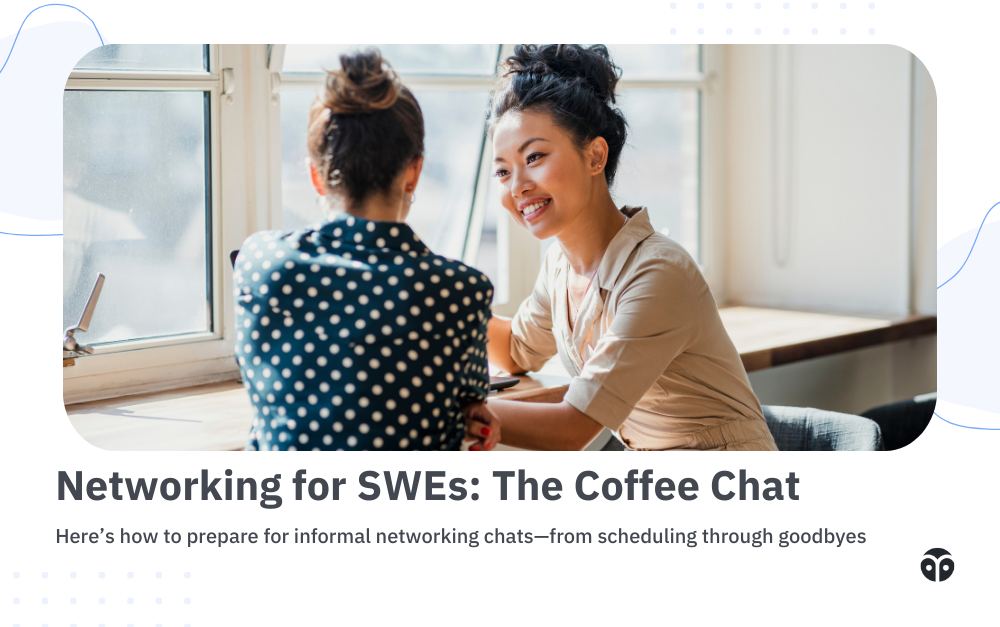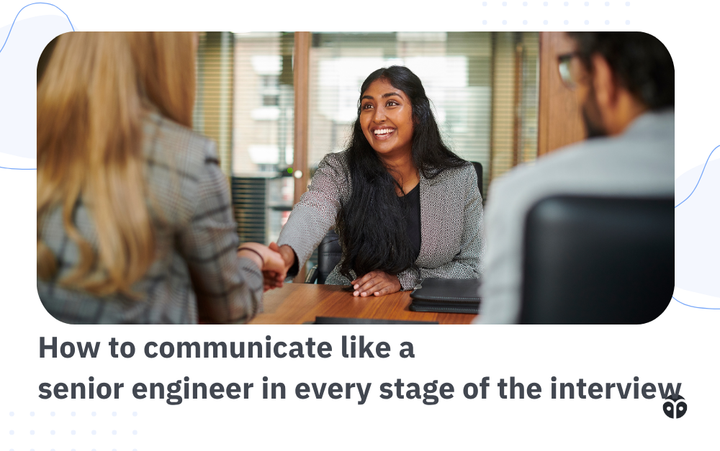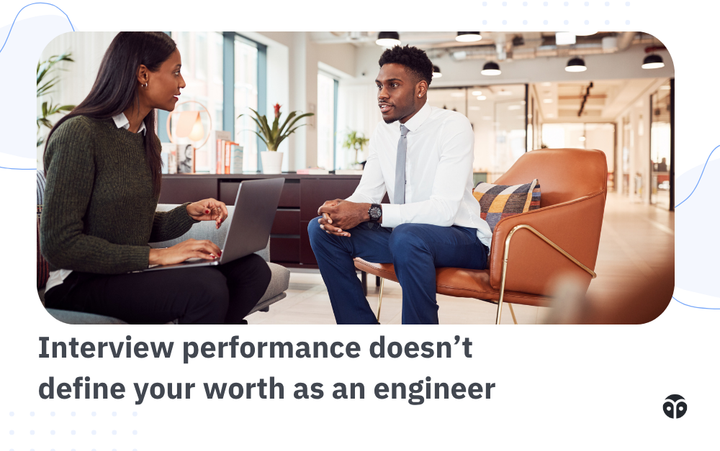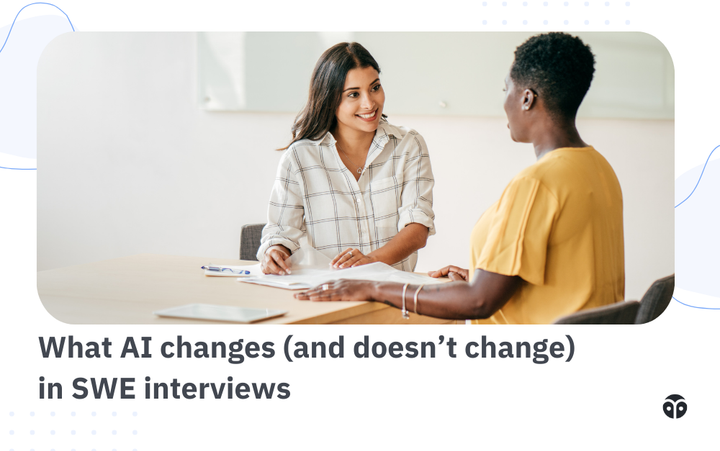Networking for SWEs: The coffee chat
Here's how to ask for and plan a coffee chat to expand your network.

An informational interview, often called a "coffee chat," is a casual conversation where you can gain insights into a career path, industry, company, or role by speaking with someone who has relevant experience. It’s an opportunity to learn, build a relationship, and expand your network without the pressure of a formal interview.
So, what happens after someone agrees to chat? Here’s how to set up and navigate your coffee chat for the best results.
Setting up a coffee chat
This is a valuable opportunity to create meaningful connections and gain insight that you won’t find on a job posting or company website.
Here’s what to focus on during your conversation:
- Build a relationship with the person.
- Gather information about the company, role, team, or industry.
🗓️ How to schedule
Once they agree to chat, suggest a 15-minute meeting by:
- Proposing three different dates and times that work for you.
- Sending a calendar invite with the agreed-upon date/time:
- Title: [Your Name]::[Their Name] Chat
- Duration: 15 minutes
- Video call link: Include a Google Meet or Zoom link for a face-to-face conversation.
Creating a safe environment to learn
It’s important to think of this call as a casual chat where you’re getting to know someone and learning about their experience. While a formal agenda is NOT needed, we recommend following the below format guide if you’re unsure of how to structure the call:
[3 min] Intro
- Start with brief small talk to break the ice (e.g., “How’s your day going?”).
- Thank them for taking the time to speak with you.
- Briefly introduce yourself and share why you’re interested in learning more about their background, role, or company (keep it short—the focus is on them).
[10 min] The Interview
- Have at least 10 prepared questions ready.
- Keep the conversation flowing; try to make it feel natural and conversational.
- Focus on learning about their experiences—this call is about gathering insights, not selling yourself.
[2 min] Wrap-Up
- Thank them again for their time and mention how much you enjoyed learning from them.
- Ask if you can connect on LinkedIn and stay in touch.
It’s perfectly fine to go off-script if the conversation is flowing naturally.
Follow Up with Gratitude
After the call, send a thank-you email right away (within 24 hours). Mention something specific from your conversation to show how their insights helped you.
Sample questions to get you started
It’s best to prepare beforehand so you’re not caught on the spot during the call. Come up with at least ten questions you want answers to. Rank them by priority, because you probably won’t get through them all—this is a conversation! Let it flow.
Here are a few examples:
- Can you walk me through your journey to where you are now?
- What skills are most important in your role or on your team?
- What do you find most rewarding about your work?
- What’s the biggest challenge you face in your role?
- How would you describe the company culture?
- What do you like most about working at [company]?
- What’s one thing you’d like to see improved at [company]?
- How do you define success on your team?
- How is your engineering team structured?
- What advice would you give to someone starting out in their SWE career?
👍 Do’s & 👎 Don’ts
Making the most of your informational interview requires a balanced approach—you want to be respectful, prepared, and professional while also keeping the conversation natural and casual.
Here’s how to do that effectively:
👍 Do:
- Ask if they can recommend anyone else you should connect with.
- Research both the person and their company beforehand.
- Be ready with a brief introduction: your background + what you’re looking for.
- Follow up with a thank-you email within 24 hours.
- Ask for advice.
- Reach out to people active on LinkedIn (those who have posted recently).
- Send your initial message on a Tuesday for better response rates.
- Personalize your outreach message.
👎 Don’t:
- Ask for a referral unless they offer it.
- Request a favor or job unless they bring it up.
- Mention that you’ve applied for a job in your initial message.
- Spam everyone at the company—stick to a few key contacts.
- Follow up more than once if you don’t hear back.
Get holistic help with your job hunt
We've been able to help our Fellows land life-changing roles. Formation’s Mentors come from some of the best tech companies in the world, and the personalized career coaching and supportive community make for a great support system.
If you’re having trouble navigating your job search on your own, apply here and get unconditional support from a team of engineering mentors, technical recruiters, career coaches, and more.



